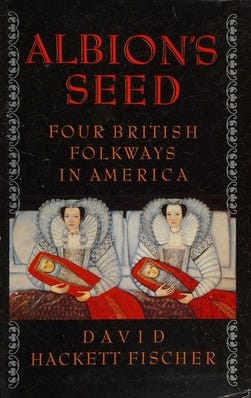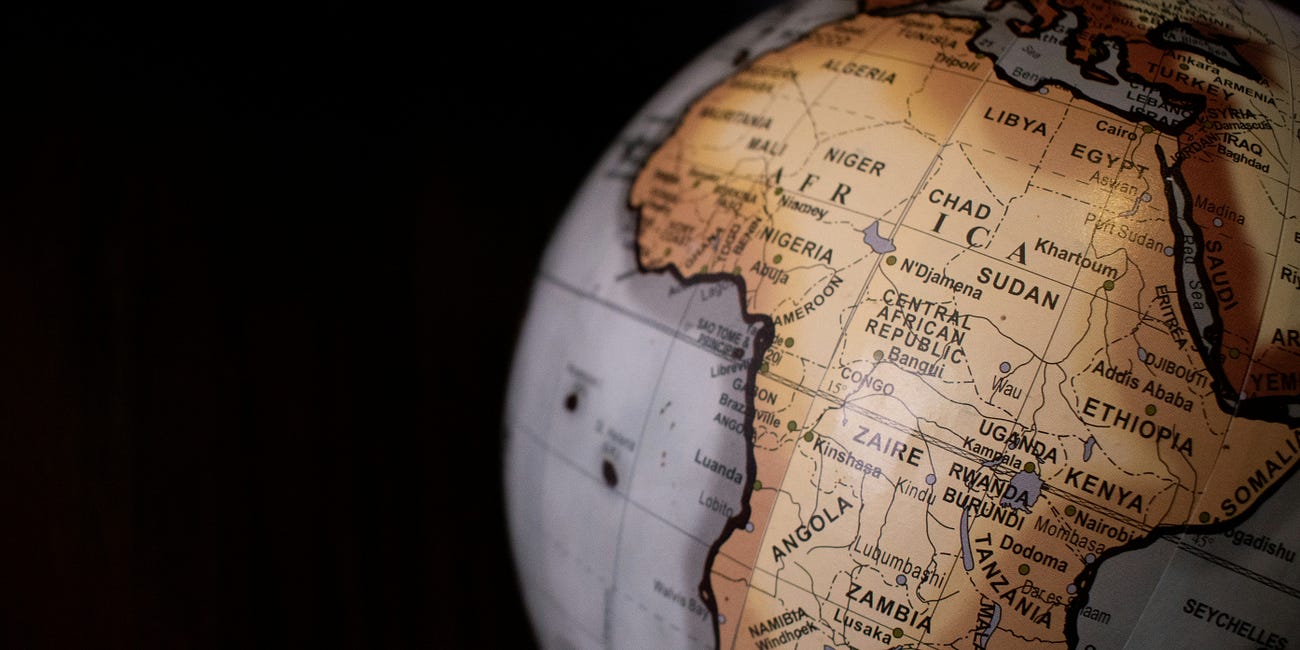The concept of identity in the United States often boils down to racial characteristics that serve both as a point of unity (for African-Americans) and a point of attack (against White Americans). It is a common refrain to hear that “Whites have no culture,” especially out of the mouths of the mainstream media pundits and want-to-be commentators on Tiktok or Instagram. In a way they are correct. Taking every White person in the United States or even the world and categorizing them as one people will inevitably result in a set of attributes so widespread as to be meaningless, but this is also a digression.
What these commentators really mean is that Americans have no culture. They are simultaneously denying the existence of and attempting to delegitimize the American nation and American ethnic identity.
Americans in fact constitute a complex and unique ethnicity, shaped by historical, cultural, geographic, and social factors no different than those that influenced the rise of a unified German people or Japanese nation. As an extension of this unique ethnic identity it also flows that the United States is the unique ethnic inheritance of the American people.
The United States is not a nation of immigrants, but instead a nation pioneered and created by a specific people and for that specific people.
Ancestry and Ethnogenesis of Americans
The majority of ethnic Americans can trace their ancestry to European countries and within this demographic those ethnic Americans from the British Isles form the core around which the American ethnicity arose. Today roughly 185 million non-Hispanic Whites can trace their ancestry back to Europe, Georgia, Armenia and so forth and of this share 32% can trace their origin to the British Isles (about 60 million people). Also within this core demographic are the nearly 20 million people that already explicitly identify as ethnic Americans.
Furthermore, a fascinating study in the American Journal of Human Genetics found that the mean share of British Isles ancestry in White Americans from every state in the Union averages roughly 20%.
Almost all European Americans share a common ancestry as intermarriage and cultural integration of successive waves of Europeans took place.
This core demographic of Europeans from the British Isles are often labelled WASPs (White Anglo-Saxon Protestants) and it is their cultural inheritance that formed and built the ethnic American identity as it exists today.
Large waves of Protestant Germans, Protestant Scandinavians, and Protestant Dutch contributed to this core demographic to such a degree that today a majority of European descended Americans can trace their ancestry back to a belt of protestant Europe barely larger than Texas.
It was not a ‘diverse’ set of disparate peoples that built the United States, but a highly culturally, religiously, and linguistically interrelated group of people that came together under British law, tradition, and example to build a new nation.
Ethnic Americans today
Today virtually all people of significant European descent born in the United States are ethnic Americans. We share one language, a distinct set of regional cultures derived from our shared historic experiences, one faith, and a set of common beliefs in this nation as our only home. Americans today do not look back to Europe as any sort of ‘homeland’ like a Jewish person may for Israel or the majority of Hispanics do for their countries of ancestral origin in Latin American. Americans, ethnic Americans, belong only to the United States and it is our nation-state and inheritance.
We also share a common faith with roughly 100% of Americans descending from Christian stock, 70% claiming to be active Christians, and the vast majority of those 80% being of a protestant background. Our religious and public life is conducted in English (another part of our WASP inheritance) and passion for preserving a monolingual America against the encroachments of Spanish brought in by Hispanic immigrants has only grown in recent decades.
Ethnic Americans also celebrate distinctive holidays and traditions not shared by other European ethnicities nor by other peoples in the United States. It is ethnic Americans who are most excited by 4th of July celebrations while you can find many Hispanic and African American penned articles about why they and their families do not celebrate this holiday. There is a similar story for Thanksgiving as well, with non-ethnic-Americans penning pieces about the “complicated” or “historically hurtful” nature of holidays that are not their own but rather belong to the American nation of which they are not a part.
Ethnic Americans and African Americans
There is of course another people who have been present since the first Europeans set foot on the American continent and began to build a new nation: African Americans.
African Americans have been a part of the American experience, shaped it, influenced its culture and religious fabric, and today constitute their own unique ethnicity.
I am not going to go further in defining African Americans other than to state they are indeed a unique people in their own right and as a function of that uniqueness deserve to define themselves rather than be defined.
However, it is worth noting that large shares of African Americans (30-45%) do not enjoy life in the United States and would move abroad if given the opportunity. This clearly shows that African Americans and ethnic Americans still have not, and likely never will, find a way to integrate into a single cohesive nation and will remain two separation nations in perpetuity.
As such it remains a legitimate discussion how best to facilitate the migration of those African Americans who want to leave so that they may build lives outside of a country they do not wish to live in and so ethnic Americans no longer need to share their country with those who hold such animosity toward them.
Conclusion
Ethnic Americans are beyond a shadow of doubt a unique people with a common ancestry, faith, language, history, and future. We have our own holidays, our own traditions, and most importantly our own nation to defend, protect, and advance against the interests of any who may seek to harm it.
As much as we must continue to advocate for repatriation in order to undue the damage of the Great Replacement, we must also defend ourselves as a unique people rather than simple “Whites”. Any immigrant or even person from Europe, the Middle East, or Latin America may be able to claim the identity “White” based on their appearance, but they cannot claim to be Americans, they cannot claim to be us.
White Papers is a donor-supported publication! Please Support our mission to take on more writers and policy experts:
Zelle: whitepapersinstitute@protonmail.com
Buy us a coffee: https://www.buymeacoffee.com/wppi
Linktree: https://linktr.ee/wppi
Snail Mail: White Papers Policy, PO Box 192, Hancock, MD 21750










Like Jews, who are White or not-White depending on what interest they are pushing, Blacks are Americans or Victims-of-America for the same reason. The very common whine of Blacks about how "America" treats them shows that they see themselves as outsiders to the White nation within which they find themselves. There are exceptions but exceptions don't count. The 1790 Naturalization Act shows the Founding Fathers' intent: a White nation.